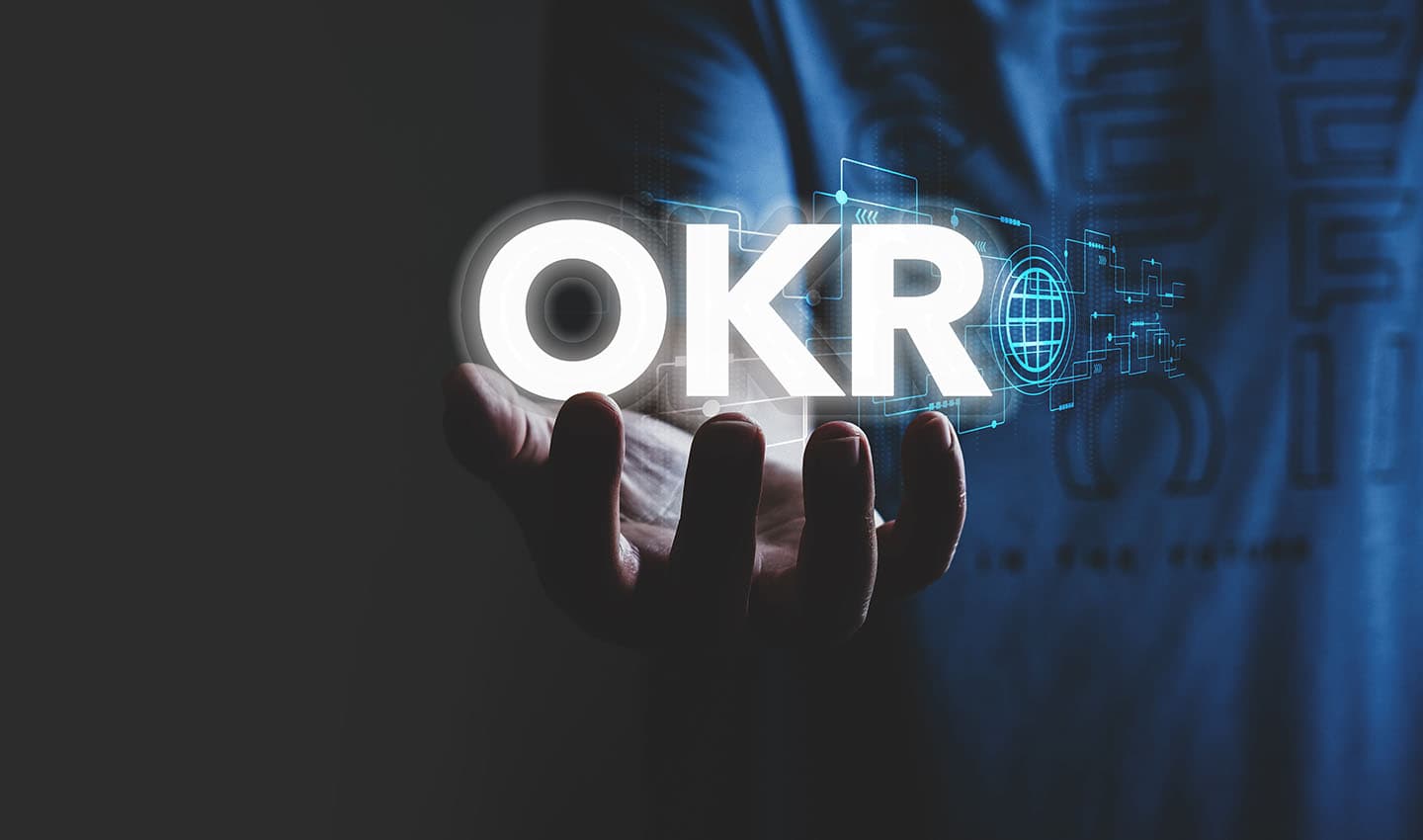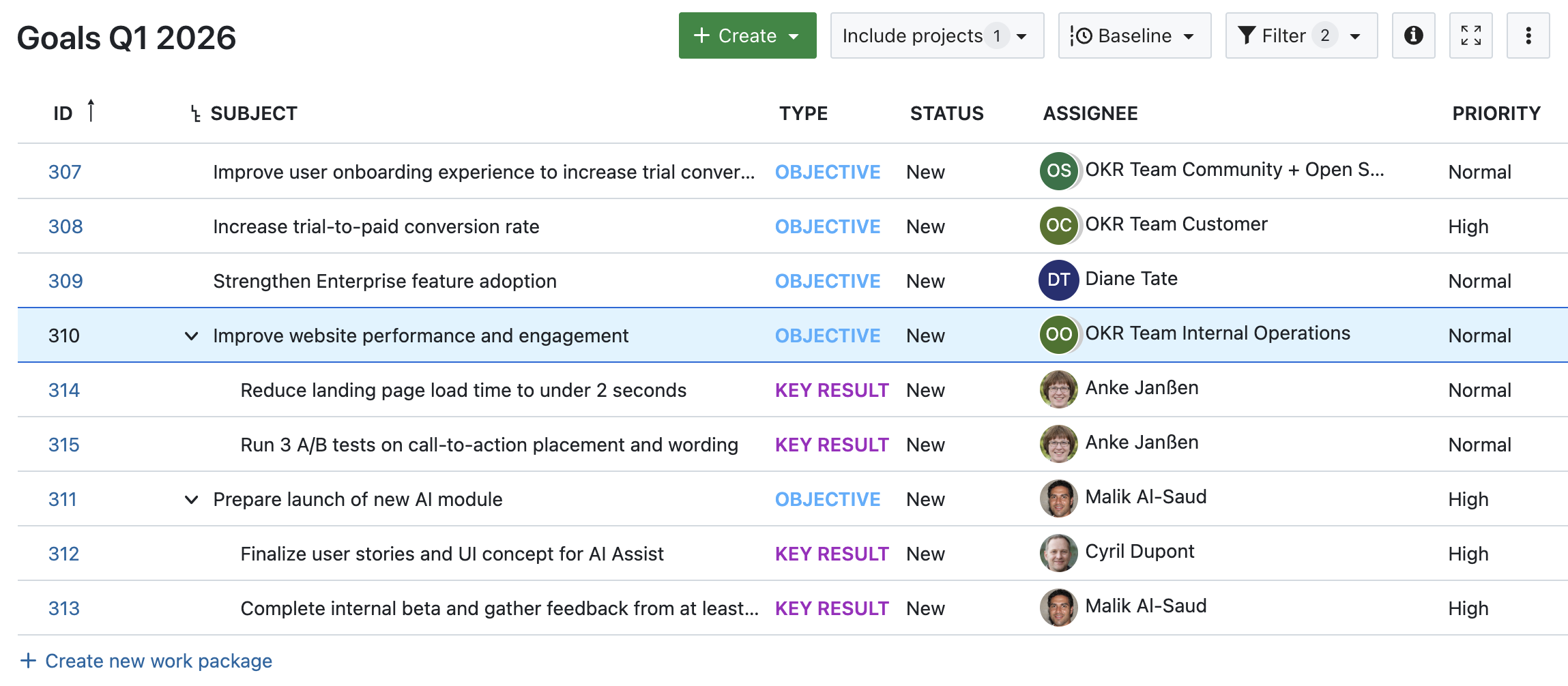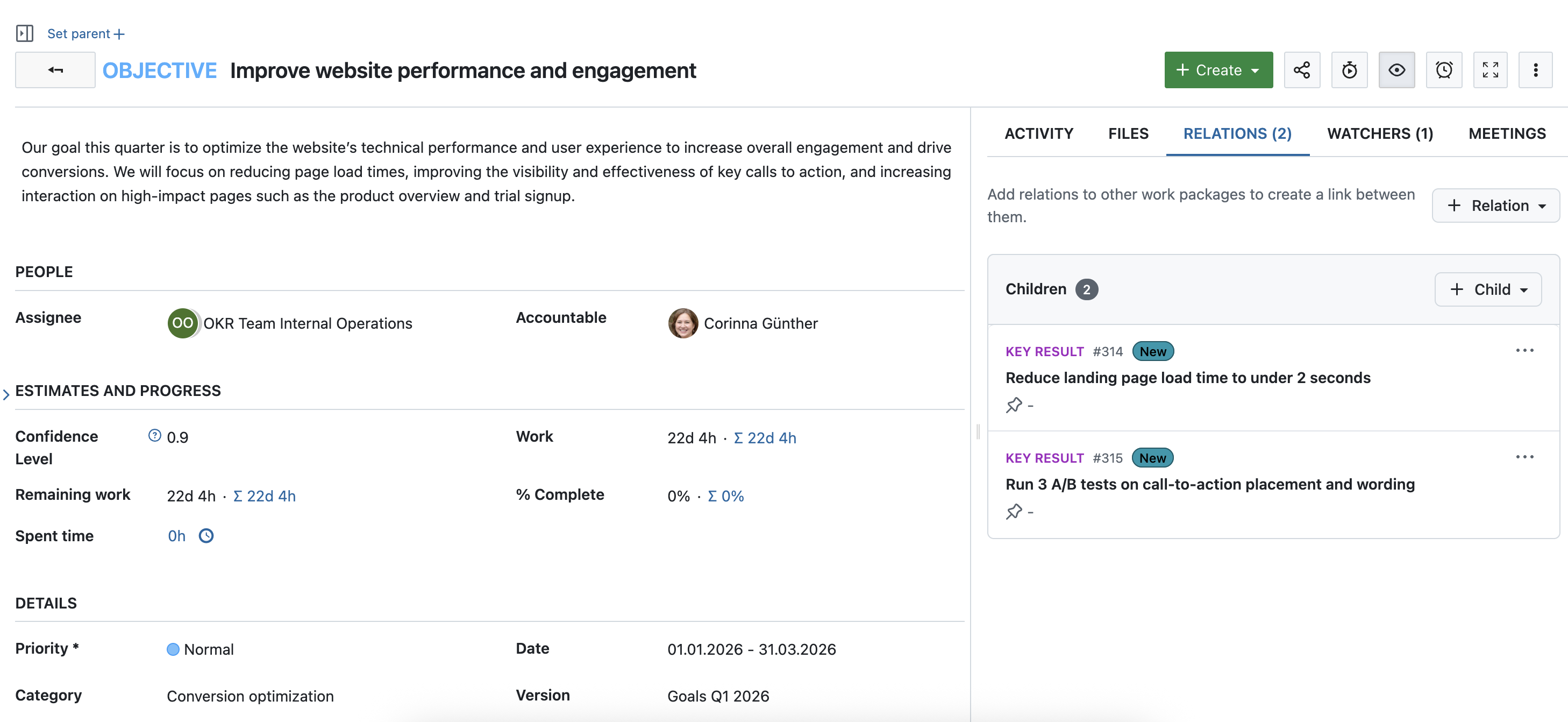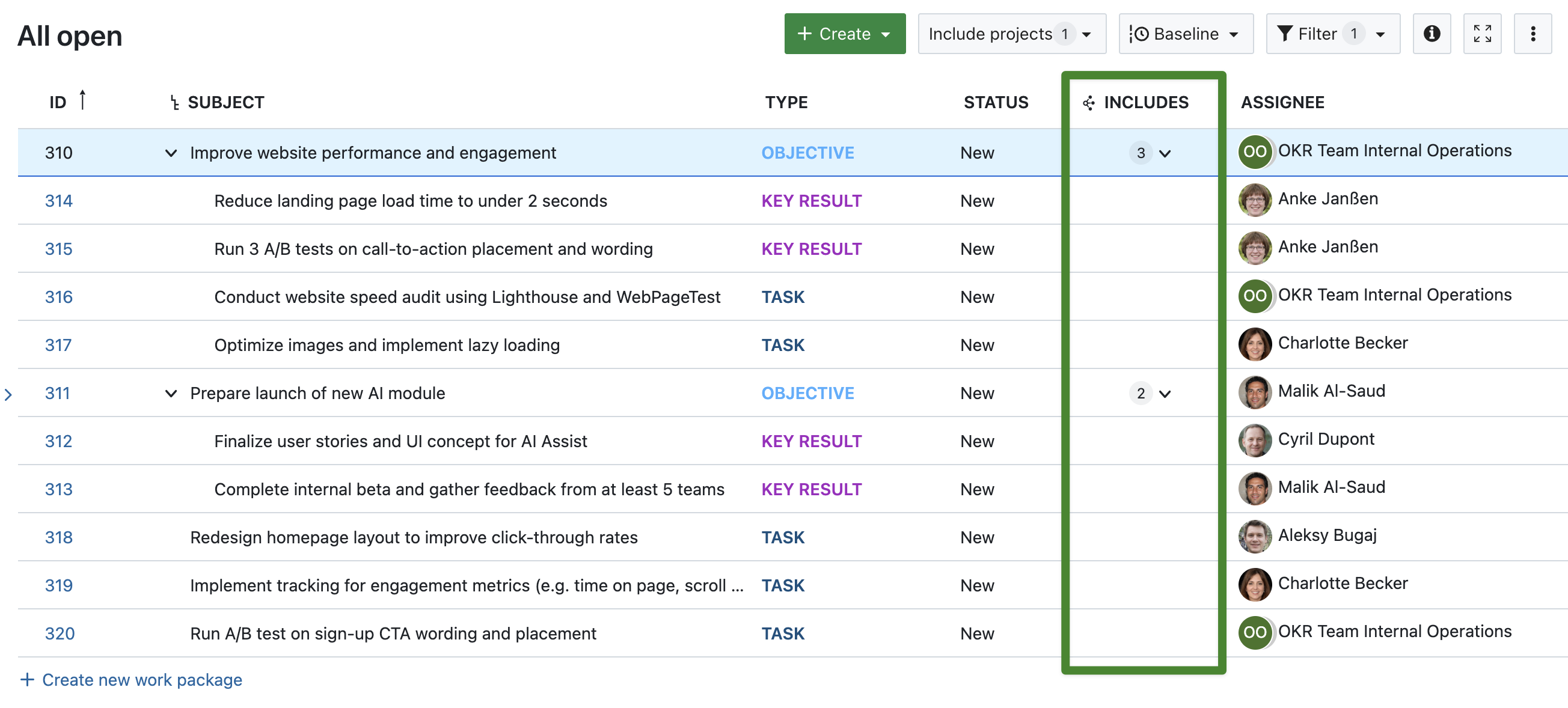
Set and achieve your goals with open source software for OKRs (Objectives and Key Results)
OpenProject as a secure web-based project management software supports many different use cases. At the beginning of each quarter, it is very convenient to follow the OKR process in OpenProject, set your strategic goals, derive smaller goals, and break them down into manageable and measurable smaller results.
What are OKRs?
After Agile, OKR is now arguably a well known buzzword in modern business management and people management. Not only does the company set goals from the top down anymore, but the employees are also involved in the formulation of the company’s goals in this management framework.
OKR stands for Objectives and Key Results. With OKRs, individual tasks of employees and/or teams are linked to the strategic corporate goals. Based on the corporate goals, the teams regularly (e.g., every quarter) derive their individual or team goals and define measurable results for those goals.
Objectives are qualitative goals: Where do I want to go or what do I want to achieve (always with regard to the corporate goal(s)). Key Results are quantitative smaller results (tasks) which count towards the Objective: What do I have to do to achieve the goal and how can I measure it?
The overall company goals are broken down into qualitative Objectives and quantitative Key Results for each planning period. The Objective is achieved when all underlying Key Results are completed.
OpenProject as web-based open source OKR software
We use OpenProject as OKR software ourselves to support our (slightly modified) form of OKRs. Among many other features, goals can be easily defined in OpenProject. Define, document and follow-up on (strategic) business goals. The work package module is very suitable for this. First, the work package types GOAL and KEY RESULT are added and activated in the project.
If required, additional custom fields, such as Goal Category and KPI can be added to the work package type. Collect and specify the (strategic) goals in this Goal Backlog. Here it is advisable to subdivide e.g. after different Goal categories. During your goal planning, prioritize the goals in OpenProject, assign them to an Accountable, and add them to a version (e.g. Goals Q1 2026).

For the planning of the next quarter, set a filter, e.g. to the version “Goals Q1 2026”. You can discuss these strategic goals with the team and each responsible person, then break them down into individual qualitative goals (Objectives) for the next period and add measurable Key Results for those.
This works very well in OpenProject via the relations feature. Either choose the relation “Includes” between the Objective and the respective Key Results or add Key Results as children for Objectives.

In the list you can then display which Key Results need to be completed in order to fulfil the Objective. Of course, all other features of the work packages, such as comments, status, priority, %Complete, custom fields, workflows, etc. work in addition to this.
If you set Key Results as children, you could create a “Part of” relation between tasks and Objective. Or, the other way round, add the “Includes” relation to the Objective.

This way, you are able to configure your OKR process to your needs. This enables transparent and efficient documentation and tracking of OKRs as well as direct integration with project management.
Tip
In the OpenProject team, we use our own software to manage work in form of Objectives and Key results. Read this guide to benefit from our learnings on how to use OpenProject as OKR software.
What else should be considered when working with OKRs?
It is best to start with only a few Objectives. You should clearly discuss within the company / team what you want to focus on in the next quarter.
Key Results should be broken down and documented in as much detail as possible. It should include a measurable result so that you know exactly when the goal was achieved. If necessary, you can work with the %Complete field in OpenProject to show how far along you are in achieving each Key Result and to visualize progress over time.
The team should agree on whether the goals are stretch or fix goals, i.e. goals that can be realistically completed at the end of the period. Either way they should be SMART. Read more about goal setting in this wikipedia article.
If a goal is not achievable within a period, we try to break it down into smaller iterations if possible. If this is not possible, we accept that a goal can be carried over into the next period, including new Key Results.
Evidently, OKR software can only support the process. It is important to discuss the goals and the results in detail with the team, to review them in regular meetings and to improve them if necessary. A review of the process and lessons learned with the team is especially recommended at the end of each completed planning period and before the next iteration.
We look forward to your feedback, suggestions, and ideas on how to best use OpenProject as OKR software.




